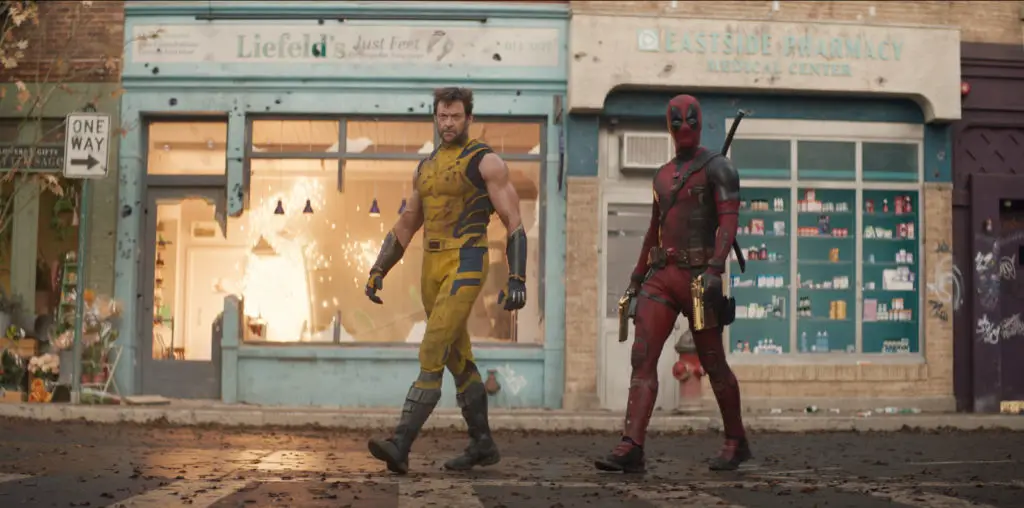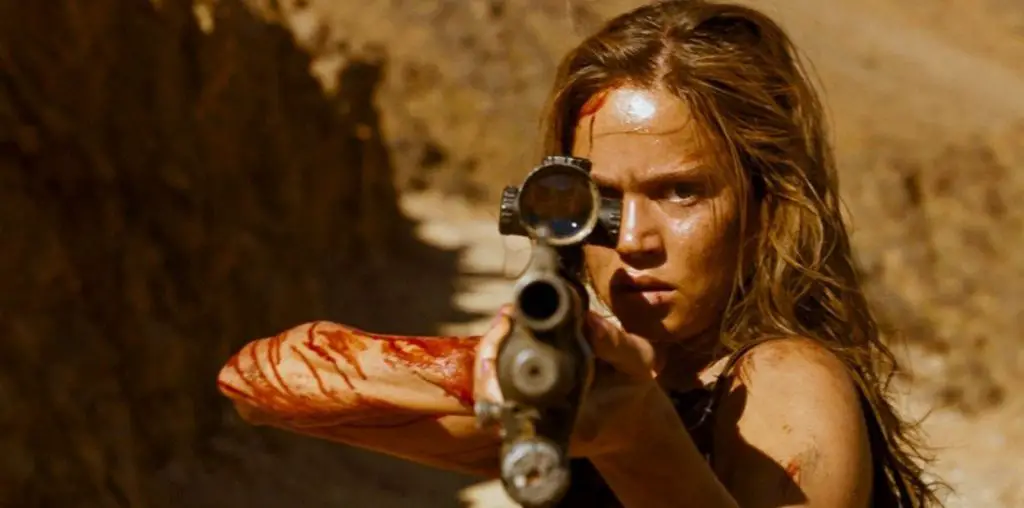
BOOTLEG FILES 465: “Alexander: The Other Side of Dawn” (1977 made-for-television film starring Leigh McCloskey and Eve Plumb).
LAST SEEN: The entire film is on YouTube.
AMERICAN HOME VIDEO: On a dubious DVD label.
REASON FOR BOOTLEG STATUS: A breakthrough, of sorts, in LGBT television.
CHANCES OF SEEING A COMMERCIAL DVD RELEASE: Not for some time.
In 1976, NBC offered the American public something called “Dawn: Portrait of a Teenage Runaway.” Even by the low standards of 1970s-era made-for-television exploitation, this production was fairly crass and dumb – although there was some tonic in Eve Plumb trying to jettison her Jan Brady persona in order to play a Hollywood hooker. Not surprisingly, this mess was a ratings hit, and the network decided that a sequel was needed.
Strangely, the network decided not to pursue the further denigration of Eve Plumb. Instead, it opted to provide a new story for the character of Alexander, a somewhat mysterious street character who served as Dawn’s protector and boyfriend. Leigh McCloskey was brought back to play Alexander, and a screenplay was created to flesh out the vague aspects of the character’s back-story.
The resulting production, “Alexander: The Other Side of Dawn,” was more than a little strange. It offered the same puerile consideration of the Los Angeles sex trade that polluted “Dawn,” but it took a risk by tiptoeing into the then-taboo realm of gay subject matter. While the film seems tame (and, perhaps, weak) by contemporary standards, it was considered rather daring for its time.
“Alexander” starts near the conclusion of the “Dawn” narrative, with Alexander being stabbed in an alley by Dawn’s pimp. He is taken to a hospital, and during his recovery Alexander flashes back to how he wound up in California.
It seems that Alexander is the son of Oklahoma farmers, but being a sensitive teenager he is more interested in artwork than agriculture. His father is unhappy about this and forces him to leave home. When his mother bemoans the banishment of her child, Alexander’s father sneers, “We’ve got six others!”
Alexander travels to Los Angeles by bus, and at the depot he is spotted and quickly befriended by a shady character calling himself Buddy. Alexander admits that he has no job prospects and little money, and Buddy cheerfully declares, “The biggest industry in this town is unemployment.” Inexplicably, Buddy offers Alexander the chance to be his roommate.
Alexander discovers how Buddy earns a living: he has sex with men. Alexander is initially appalled, but at least Buddy is making money – as a minor, Alexander is unable to get a job. With relatively little goading, Alexander agrees to take assignments as a gigolo for wealthy older women with a hunger for corn-fed farm boys.
The film then returns to Alexander’s hospital room, where he has made a seemingly instant recovery from his wounds (and where no one bothers to stick him with a medical bill). Alexander reminds Eve that he wants to marry her, but he doesn’t want her to be in Los Angeles. He sends her back to her hometown in Arizona and he returns to a hitherto unmentioned job in a department store.
Alas, the private sector has little use for Alexander and he is quickly fired. With no job prospects on the near horizon (remember, this was made during the Carter Administration), Alexander reluctantly decides to try his hand at hustling gay men. But on his first night on the job, he is arrested in a sting. Fortunately, his visit to the police station includes a chance encounter with an openly gay psychologist who operates a center for runaway gay teenagers.
At this point, “Alexander” veers into very unusual territory (for 1977, at least) by presenting the gay psychologist as a masculine, straight-acting professional (played by Earl Holliman in a no-nonsense, stolid style) and not some Paul Lynde-style mincing queen. Even more unusual is the film’s presentation of the gay youth in the center as sympathetic individuals rather than as figures of derision.
Although Alexander is glad to be released from police custody, he is uncomfortable at the gay youth center and insists that he is not homosexual. He barges out, but has nowhere to go and spends his nights sleeping in a park and his days wandering art museums. During an afternoon at the museum, he meets a football player named Charles “Snake” Selby. It seems that Selby is a closeted gay, and he propositions Alexander to become his housemate. After having spent most of the film denying that he was homosexual, Alexander abruptly moves in with the football star.
Needless to say, the romance is short lived, and both men are busted in a drug sting. In a conclusion that could only happen in made-for-television movies, Alexander gets a new start on life thanks to the intervention of the gay psychologist, the mercy of a ridiculously sympathetic lady judge, and (back from Arizona) the love of Dawn. Alexander and his lady vow to leave Los Angeles and make a new life in a less sleazy environment.
“Alexander” moves quickly (albeit illogically) under John Erman’s crisp direction, and there are a few amusing distractions including a scene at a gay bar (this might have been an American television first) where cabaret legend Frances Faye makes a rare TV appearance. There are also brief appearances by Juliet Mills and, in her last acting role, Jean Hagen. Leigh McCloskey was no great actor, but he at least he looked good on camera and it was no stretch to imagine every man and woman lusting after his Alexander. Mercifully, silly Eve Plumb was given as little screen time as possible.
Yet “Alexander” was also a victim of its time. John Phillip Lay, in his 2011 book “Dangerous, Desperate, and Homosexual: Cinematic Representations of the Male Prostitute as Fallen Angels,” explained the film as an affirmation of American society’s greatest fears during the 1970s.
“Echoing the prevailing sociological model of young male prostitution, Alex is presented as a young middle-class heterosexual boy who is unwittingly lured into prostitution by unscrupulous older men,” Lay writes. “He is portrayed as having little control over the events that befall him. His lack of responsibility in his own downfall and the threat to his heterosexuality would have served as a point of identification with middle-class viewing audiences anxious over the involvement of homosexual men in the corruption of runaway boys and the breakdown of the traditional family.”
NBC broadcast the film on May 16, 1977, and it was rerun over the years on local TV stations. There has been a DVD release on a bargain basement label, as part of a double feature with a 1984 TV film called “Silence of the Heart.” However, the label that presented those titles has a history of sketchy DVD releases – and the Amazon.com customer reviews of this DVD all point toan abysmal picture quality that suggests a second- or third-generation dupe. The film can also be found on YouTube in an unauthorized posting.
While this is not a great film, by any stretch, it is an interesting curio. And for anyone trying to track how American television evolved in its presentation of gay-related issues, this film is an important (if flawed) step forward.
IMPORTANT NOTICE: The unauthorized duplication and distribution of copyright-protected material, either for crass commercial purposes or profit-free s***s and giggles, is not something that the entertainment industry appreciates. On occasion, law enforcement personnel boost their arrest quotas by collaring cheery cinephiles engaged in such activities. So if you are going to copy and distribute bootleg material, a word to the wise: don’t get caught. Oddly, the purchase and ownership of bootleg DVDs is perfectly legal. Go figure!


as for leigh, he went on to play a stiff husband for lucy ewing on dallas and then played the gynecologist who raped eden castillo with a gusto on santa barbara that he never displayed in dallas or in alexander.
what leigh never did again is play gay vague. i guess once was enough. if i’m not mistaken, wasn’t this earl holliman’s second time playing gay since the big combo?
it irks me when folks take cheap shots at 70s tv productons like 70s big screen features at the time or the 21st century network program or big screen fetures have just been burning down the barn with three dimensional portrayals of gay men. it is hypocritical to poke fun at alexander when over on abc at the same time billy crystal was hamming it up as jody and continuing the stereotype that men who fall in love with other men really want to be women. and crystal, certainly no ally, has cried that are too many depictions of gay men across network television. i surely don’t know what programs he’s watching.
I’ve seen this movie, and agree with the points that John Phillip Lay makes. Even though Alexander is constantly presented as straight throughout the film (because his one relationship with Jan Brady and that old rich lady who treats him as a one night stand is proof enough, amirite?) the weird and ambiguous way his father dismisses him early on seems way more loaded than the TV Gods initially intend, but the movie definitely doesn’t want you to believe that. Even when he gets fired from the ice cream parlor when they discover his sex worker past, and the constant looming threat that he’ll be “exposed”, it strikes a weird chord of “gay panic”. And the relationship between him and the football player is clouded with mystery. On one hand, he’s using him, and on another, when the gay psychologist pressures him on whether he was hustling him for real, he flounders and doesn’t know how to answer him, because the relationship at that point became very real for him and by golly, he actually liked him. Or at least, the viewer is lead to believe he likes him enough for there to be gloomy music when he sees him running on the beach with a new love interest. But he’s still totes straight, amirite?
This film also suffers from slightly jumpy editing, and I personally had some trouble realizing when it was jumping from his past to the present. Glasses and overalls I guess were suppose to be enough of a clue for the viewer. And much like it’s counter part, it naturally does a piss poor job of accurately even setting a gritty mood that would fit a narrative that is trying to portray the lives of sex workers, but for a 1977 Made for TV ABC movie, that’d be expecting too much, I guess?
And I think that’s the issue I have with it; it’s not as bad as “Dawn” (that was just an exercise in excruciating acting and came across like a Very Brady Hooker Special), but the gay youths, while not as terribly written for the time period, sure (if they’re not two steps away from being full blown caricatures) are still out of focus and one dimensional, so the things that plagued “Dawn: Portrait of a Teenage Runaway” shine through this film as well; cheesy scenarios and pointless plot twists thrown in to amp up drama, but it all leads to a cop out of an ending.
In any event, we can definitely look to “All American Family” if we really want a great and ahead of it’s time portrayal of a gay man who is comfortable in his own skin, (Thank the world for Lance Loud). And none of it is done with a heavy and overly preachy, ham-fisted coating. While “Alexander” definitely better than some of the other films out there for it’s time period, that, to me, isn’t saying enough.